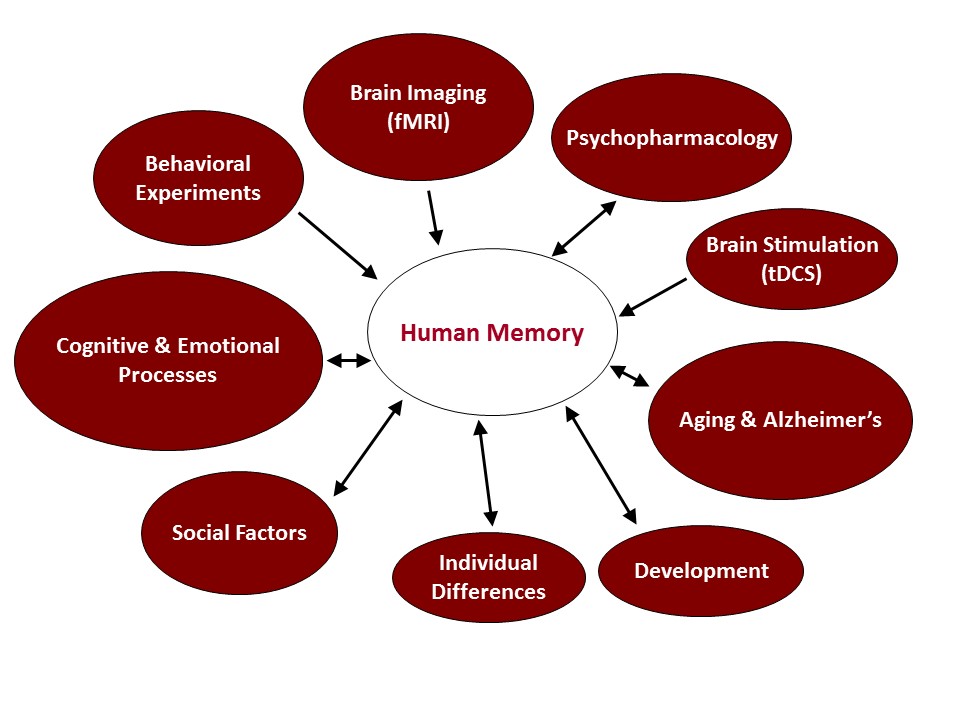본문
 What is Sensory Memory? Shaheen Lakhan, MD, PhD, is an award-winning physician-scientist and clinical development specialist. Sensory memory is a very brief memory that enables people to retain impressions of sensory info after the original stimulus has ceased. It is usually thought of as the primary stage of memory that entails registering an amazing amount of information about the setting, however only for a really brief period. The purpose of sensory memory is to retain information lengthy enough for it to be recognized. Sensory memory is a really quick-time period storage for info from the senses. It persists briefly and improve neural plasticity permits for processing even after the stimulus has ended. It allows you to retain transient impressions of information so you may interpret and work together with the world around you. In some instances, this data may be transferred to quick-term memory, but usually, it rapidly fades. Whereas sensory memory could also be brief, it is crucial to attention and memory. Consultants believe that completely different senses have different types of sensory memory.
What is Sensory Memory? Shaheen Lakhan, MD, PhD, is an award-winning physician-scientist and clinical development specialist. Sensory memory is a very brief memory that enables people to retain impressions of sensory info after the original stimulus has ceased. It is usually thought of as the primary stage of memory that entails registering an amazing amount of information about the setting, however only for a really brief period. The purpose of sensory memory is to retain information lengthy enough for it to be recognized. Sensory memory is a really quick-time period storage for info from the senses. It persists briefly and improve neural plasticity permits for processing even after the stimulus has ended. It allows you to retain transient impressions of information so you may interpret and work together with the world around you. In some instances, this data may be transferred to quick-term memory, but usually, it rapidly fades. Whereas sensory memory could also be brief, it is crucial to attention and memory. Consultants believe that completely different senses have different types of sensory memory.
The different types of sensory memory have additionally been shown to have slightly totally different durations. Also called visible sensory memory, iconic memory involves a really brief picture. Such a sensory memory typically lasts for about one-quarter to 1-half of a second. Also known as auditory sensory memory, echoic memory entails a very transient memory of sound a bit like an echo. The sort of sensory memory can final for up to 3 to 4 seconds. Also referred to as tactile memory, haptic includes the very transient Memory Wave of a contact. This sort of sensory memory lasts for roughly two seconds. How Does Sensory Memory Work? Throughout each second of your existence, your senses are continuously taking in an infinite amount of information about what you see, feel, scent, hear, and style. Whereas this info is essential, there is solely no means to recollect each and every detail about what you experience at each second. Instead, your sensory memory creates one thing of a quick "snapshot" of the world around you, allowing you to briefly focus your consideration on related details.
So simply how temporary is a sensory memory? Experts counsel that these reminiscences final for three seconds or much less. Whereas fleeting, sensory memory permits us to briefly retain an impression of an environmental stimulus even after the original info source has vanished. By attending to this information, we are able to then transfer important details into the following stage of memory, which is named quick-time period memory. Sensory memory is limited in duration and capability. It lasts very briefly and is nearly immediately replaced by new data. Researchers have found that spotlight to the stimulus has only a weak impact on sensory memory. The type of memory saved is specific to the sensory modality; in different words, echoic memory stores auditory info, iconic memory stores solely visual information, and haptic memory stores only tactile data. Information stored in sensory memory includes an excessive amount of element. Examples of iconic memory embody conditions the place you briefly have a picture in your head after the sight is gone.
For instance, after turning off a flashlight, there may be a quick image of the light in your memory. Or, after glimpsing an exit signal on the interstate, you can briefly see the image in your mind. An instance of echoic Memory Wave would be the transient memory of the blare of a car horn or the sound of an instrument, even after the noise has ended. Haptic memory examples would possibly include the transient memory of something brushing up towards your pores and skin. In each occasion, the very temporary lingering memory you expertise permits you to acknowledge and process the expertise. The duration of sensory memory was first investigated in the course of the 1960s by psychologist George Sperling. In a basic experiment, individuals stared at a screen and rows of letters have been flashed very briefly-for simply 1/20th of a second. Then, the display went clean. The participants then instantly repeated as most of the letters as they could remember seeing. Whereas many of the contributors were only able to report about 4 or five letters, some insisted that they'd seen all of the letters but that the data light too shortly as they reported them.
댓글목록
등록된 댓글이 없습니다.

